
Vágur: The Hidden Gem of the Faroe Islands
Vágur is a charming town nestled on the island of Suðuroy in the Faroe Islands. Known for its stunning landscapes, Vágur offers an authentic experience for nature lovers and adventurers alike. The town is surrounded by towering cliffs, rolling hills, and serene waters, making it a perfect destination for hiking, bird-watching, and photography. The town itself is steeped in history and culture. Stroll through the quaint streets and you'll find traditional Faroese houses, local shops, and friendly residents eager to share their stories. The Vágur Church, with its unique architecture, is a must-visit landmark that offers a glimpse into the town's rich heritage. For those interested in exploring the natural beauty, Vágur provides easy access to some of the most breathtaking hiking trails in the Faroe Islands. Don't miss the chance to visit the nearby Beinisvørð cliffs, which offer panoramic views of the ocean and surrounding islands. Whether you're seeking adventure or tranquility, Vágur is a destination that promises unforgettable experiences.
Local tips in Vágur
- Wear sturdy hiking boots; the terrain can be rugged and uneven.
- Visit the local fish factory for a unique and authentic experience.
- Check the weather forecast before planning hikes, as conditions can change rapidly.
- Explore the town on foot to fully appreciate its charm and history.
- Try the local cuisine, especially dishes featuring fresh, locally caught seafood.
Vágur: The Hidden Gem of the Faroe Islands
Vágur is a charming town nestled on the island of Suðuroy in the Faroe Islands. Known for its stunning landscapes, Vágur offers an authentic experience for nature lovers and adventurers alike. The town is surrounded by towering cliffs, rolling hills, and serene waters, making it a perfect destination for hiking, bird-watching, and photography. The town itself is steeped in history and culture. Stroll through the quaint streets and you'll find traditional Faroese houses, local shops, and friendly residents eager to share their stories. The Vágur Church, with its unique architecture, is a must-visit landmark that offers a glimpse into the town's rich heritage. For those interested in exploring the natural beauty, Vágur provides easy access to some of the most breathtaking hiking trails in the Faroe Islands. Don't miss the chance to visit the nearby Beinisvørð cliffs, which offer panoramic views of the ocean and surrounding islands. Whether you're seeking adventure or tranquility, Vágur is a destination that promises unforgettable experiences.
When is the best time to go to Vágur?
Iconic landmarks you can’t miss
Kirkjubømúrurin
Discover the rich heritage and stunning landscapes of Kirkjubøur, one of the oldest inhabited villages in the Faroe Islands, steeped in history and culture.
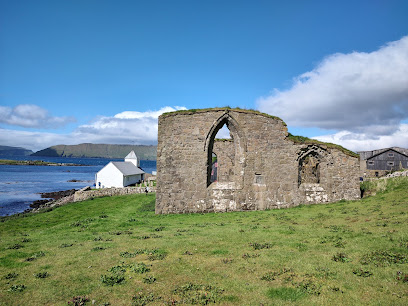
Múlafossur Waterfall
Discover the breathtaking beauty of Múlafossur Waterfall, an iconic natural wonder in Gasadalur, Faroe Islands, perfect for nature lovers and photographers alike.
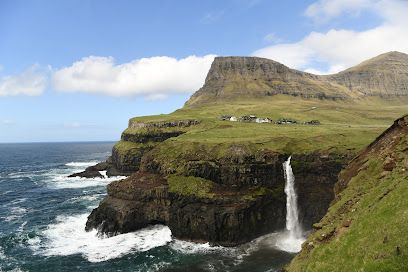
Gjógv Natural Harbour
Discover the enchanting beauty of Gjógv Natural Harbour in the Faroe Islands, where dramatic cliffs meet tranquil waters, offering a perfect getaway for nature lovers.
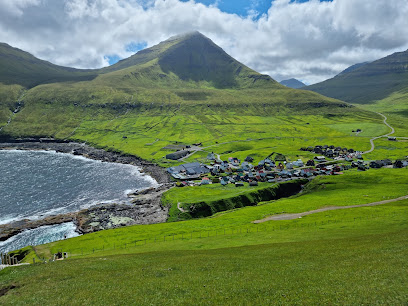
The Nordic House
Explore the rich culture of the Faroe Islands at The Nordic House, a stunning cultural center offering art, architecture, and local cuisine.
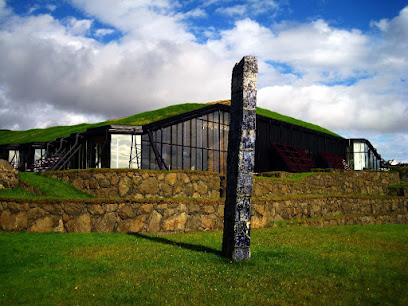
Fossá
Experience the breathtaking beauty of Fossá, the tallest waterfall in the Faroe Islands, a must-visit for nature lovers and photographers alike.
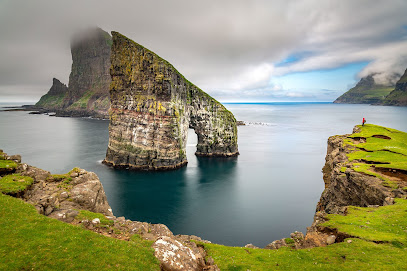
Skansin
Discover the historic Skansin fortress in Tórshavn, a stunning landmark with breathtaking views and rich cultural significance in the heart of the Faroe Islands.
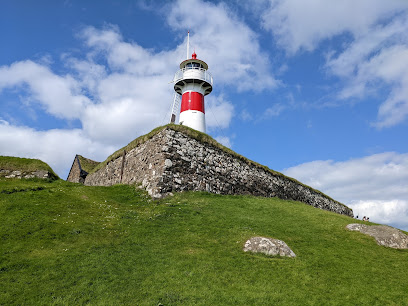
Trælanípa
Discover the breathtaking views and rich folklore at Trælanípa, one of the most iconic cliffs in the Faroe Islands.
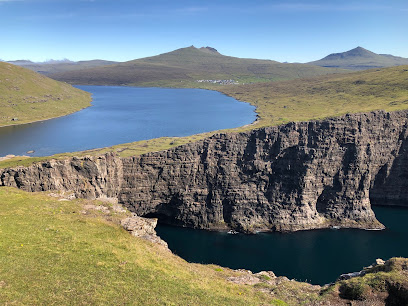
The Seal Woman (Kópakonan)
Discover the captivating tale of the Seal Woman in Mikladalur, an iconic sculpture steeped in Faroese folklore and surrounded by stunning coastal scenery.
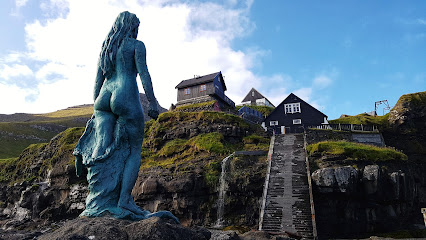
The National Gallery of The Faroe Islands
Explore the stunning collection of Faroese and international art at The National Gallery of The Faroe Islands in Tórshavn, a cultural gem waiting to be discovered.
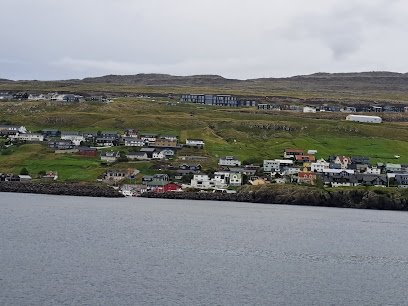
Tjóðsavnið (Faroe Islands National Museum)
Explore the rich history and cultural heritage of the Faroe Islands at Tjóðsavnið, the National Museum showcasing art, archaeology, and natural history.
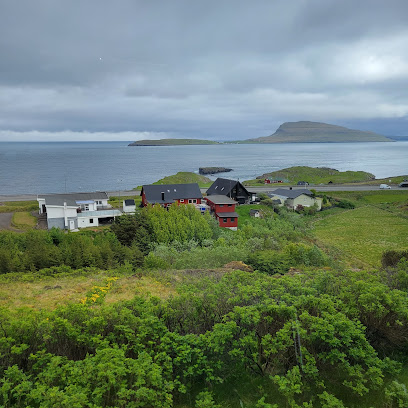
Kallur Lighthouse
Discover Kallur Lighthouse in Kalsoy, a breathtaking landmark offering stunning views, rich history, and an unforgettable hiking experience in the Faroe Islands.
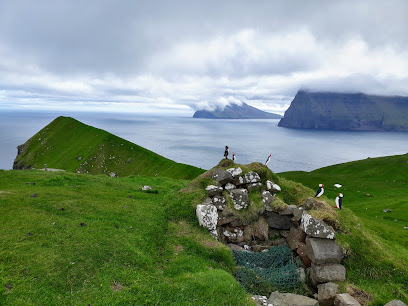
Bøsdalafossur Waterfall
Discover the breathtaking beauty of Bøsdalafossur Waterfall in the Faroe Islands, where cascading waters meet stunning landscapes.
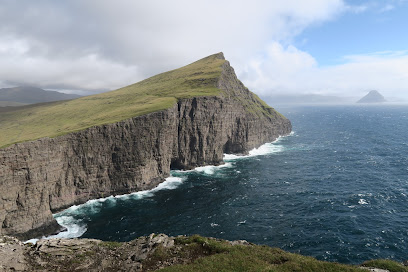
Slave Cliff (Lake Above the Ocean)
Explore Slave Cliff in the Faroe Islands, where stunning ocean views and rugged landscapes await every adventurous traveler.
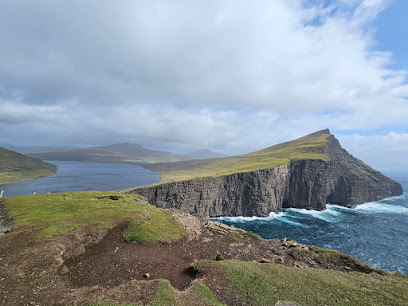
Klakkur
Experience breathtaking vistas and unforgettable hikes at Klakkur, a must-visit destination in the stunning Faroe Islands.
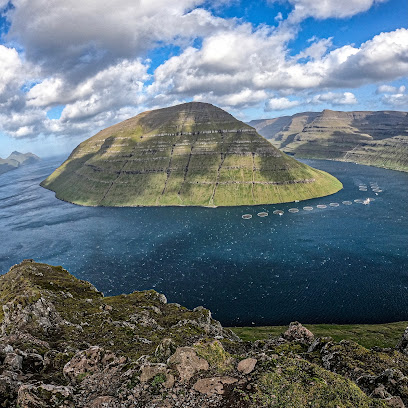
Tórshavn Cathedral
Explore Tórshavn Cathedral, an architectural marvel in the capital of the Faroe Islands, showcasing rich history and stunning craftsmanship.
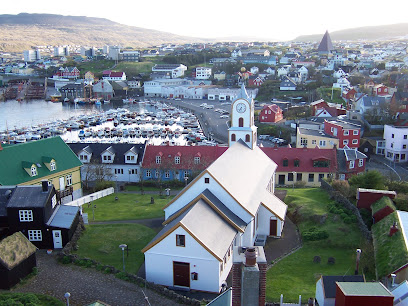
Unmissable attractions to see
Akraberg Lighthouse
Discover the southernmost point of the Faroe Islands, where stunning views and maritime history converge at the iconic Akraberg Lighthouse.
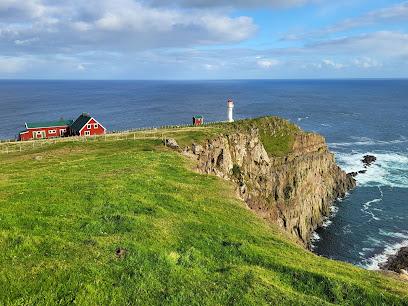
Hvannhagi
Discover Hvannhagi: Hike to a hidden Faroese valley with stunning views, a tranquil lake, and unique geological formations.
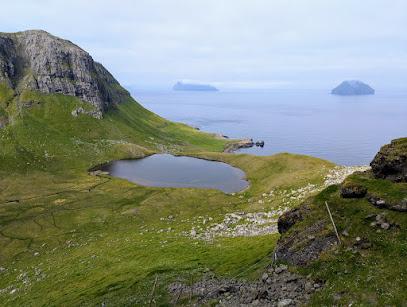
Tvøroyri Town and Maritime Museum
Discover Suðuroy's maritime past at Tvøroyri Town Museum: artifacts, stories, and a deep dive into Faroese heritage.
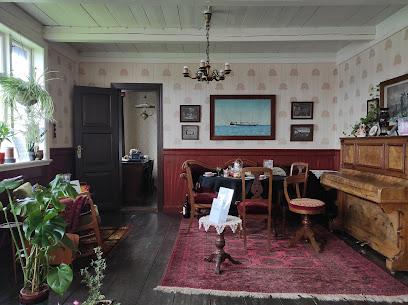
Essential places to dine
Katrina Christiansen
Experience authentic Faroese cuisine at Katrina Christiansen - a must-visit Scandinavian restaurant in Tórshavn.
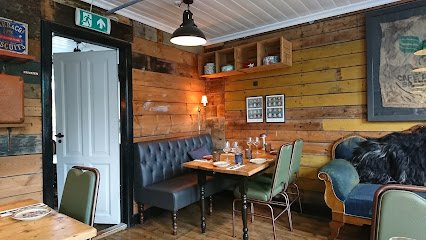
Angus Steakhouse
Experience exquisite dining at Angus Steakhouse in Tórshavn - where premium steaks meet Faroese hospitality.
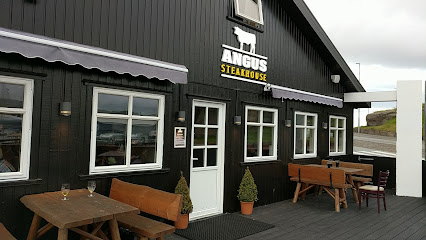
Áarstova
Experience authentic Faroese cuisine at Áarstova in Tórshavn – where tradition meets flavor in every dish.
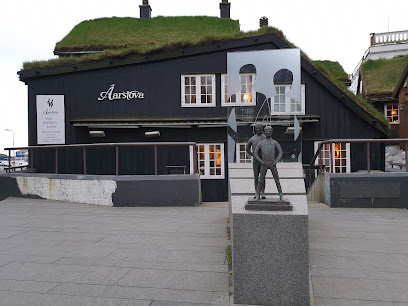
Barbara Fish House
Discover exceptional seafood dining at Barbara Fish House in Tórshavn - a true taste of the Faroe Islands' maritime heritage.
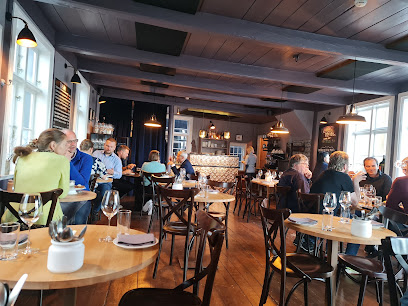
Koks Restaurant
Experience exquisite Nordic cuisine at Koks Restaurant in the scenic Faroe Islands, where every dish tells a story of local traditions.
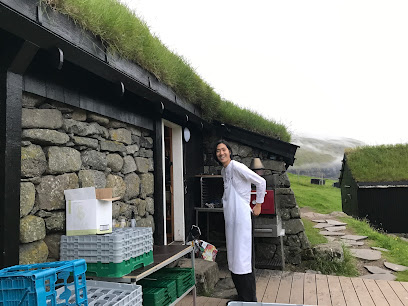
Café Zorva
Discover local flavors and stunning views at Café Zorva in Sørvágur - your perfect brasserie escape in the Faroe Islands.
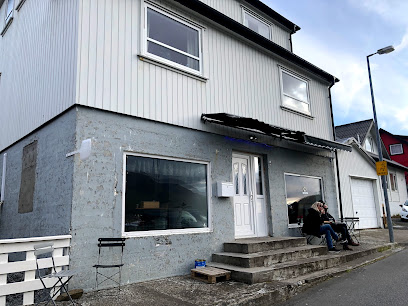
Fisk og Kips
Experience authentic Faroese flavors at Fisk og Kips in Tórshavn—where fresh seafood meets classic comfort food.
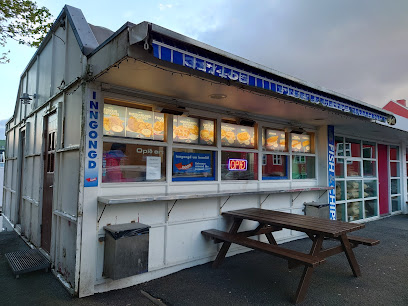
Kafe Umami
Experience exquisite flavors at Kafe Umami in Tórshavn – where local ingredients meet international culinary artistry.
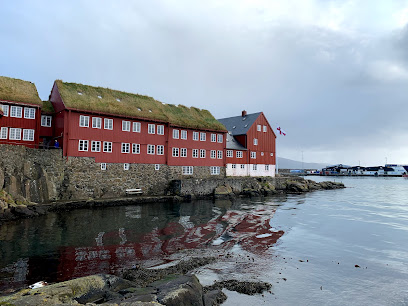
Suppugarðurin
Discover authentic Japanese ramen with a Faroese twist at Suppugarðurin in Tórshavn - where tradition meets innovation.
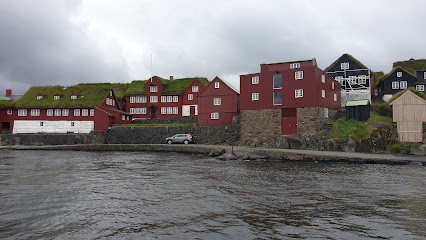
Seven
Experience authentic Chinese cuisine at Seven Restaurant in Tórshavn, where every dish tells a story of flavor and tradition.
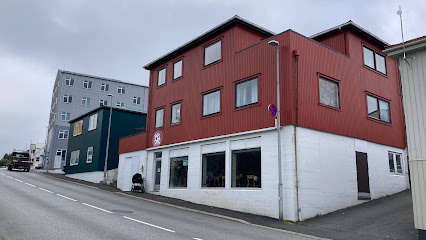
hvonn
Experience modern Faroese cuisine at Hvonn in Tórshavn—where tradition meets contemporary culinary artistry.
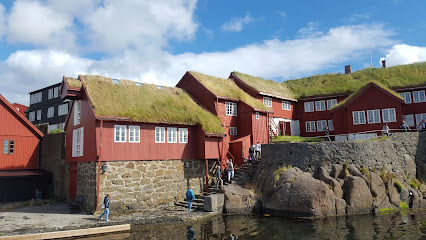
Smiðjan
Discover Smiðjan: Where Authentic Faroese Cuisine Meets Cozy Atmosphere in Miðvágur.
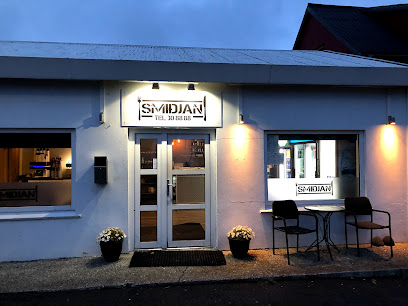
Skeiva pakkhús
Discover authentic Faroese cuisine at Skeiva Pakkhús in Tórshavn - where tradition meets taste in every dish.
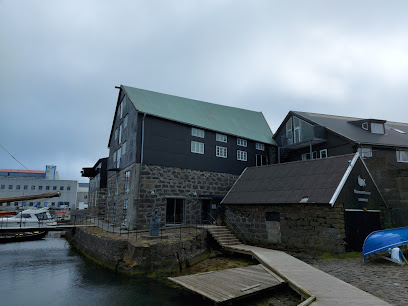
Caféin á Mølini
Discover exquisite local cuisine and breathtaking views at Caféin á Mølini in Skálavík - a true taste of the Faroe Islands.
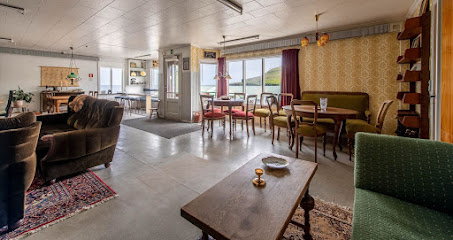
Pizza 67
Savor authentic Faroe Islands flavors at Pizza 67 – where every pizza tells a story!
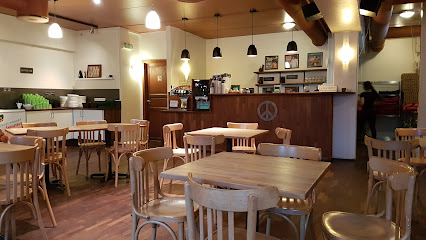
Markets, malls and hidden boutiques
Bónus
Explore the best of Faroese cuisine and local products at Bónus Supermarket in Tórshavn.
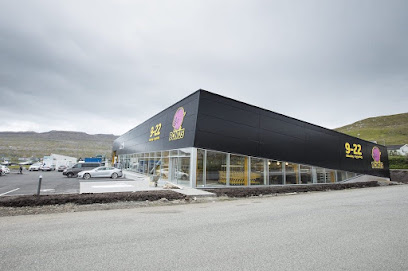
Á Landavegur
Experience the heart of Tórshavn at Á Landavegur, your go-to supermarket for local and international delights in the Faroe Islands.
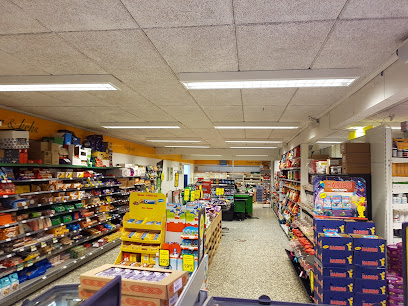
Á Handil
Experience the essence of the Faroe Islands at Á Handil, a charming grocery store in Tórshavn offering local and international delights.
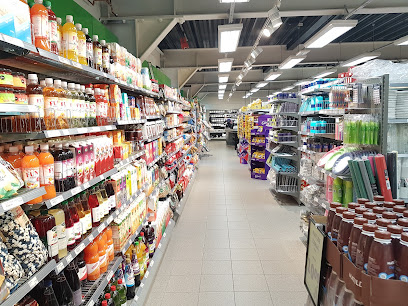
Á handil
Discover local flavors and artisanal products at Á handil, your go-to grocery store in the heart of Tórshavn, Faroe Islands.
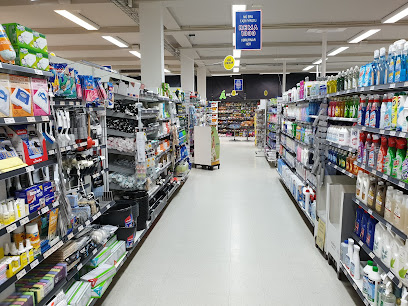
Inn við Grønlandsvegin
Discover local flavors at Inn við Grønlandsvegin, Tórshavn's premier grocery store for an authentic taste of the Faroe Islands.
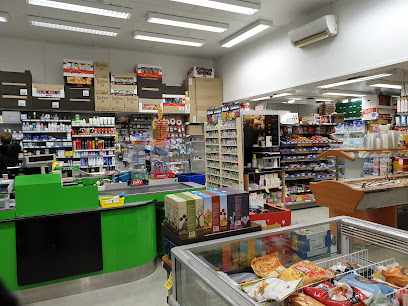
Zacharias Muller Supermarket
Experience the authentic flavors of the Faroe Islands at Zacharias Muller Supermarket in Porkeri, where local lifestyle meets delicious food.
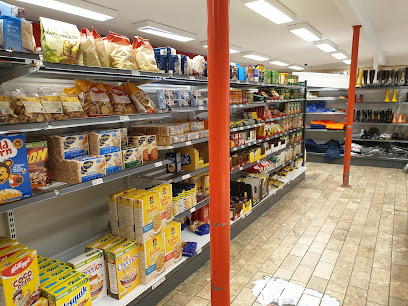
Á Sandoyggin
Discover local flavors and essential goods at Á Sandoyggin, the charming grocery store in Skopun, Faroe Islands.
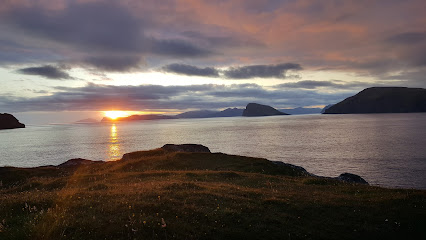
Magn Gas Station
Magn Gas Station: Your essential stop for fuel and refreshments in the breathtaking Faroe Islands.
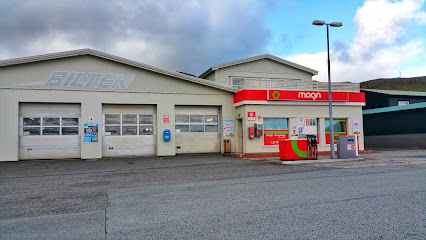
Torgið Shopping Center
Experience the vibrant shopping and dining scene at Torgið Shopping Center in the heart of Vágur, Faroe Islands, where local culture meets modern retail.
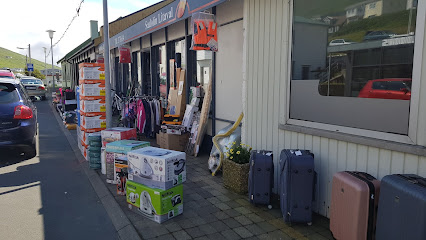
Rúsdrekkasøla Landsins - Trongisvágur
Experience the essence of the Faroe Islands at Rúsdrekkasøla Landsins, your go-to destination for local beers, wines, and spirits.
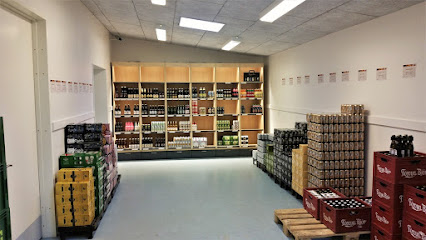
Ryggstein Sigarir
Explore Ryggstein Sigarir in Tórshavn, a premier destination for premium cigars and a welcoming atmosphere for enthusiasts.
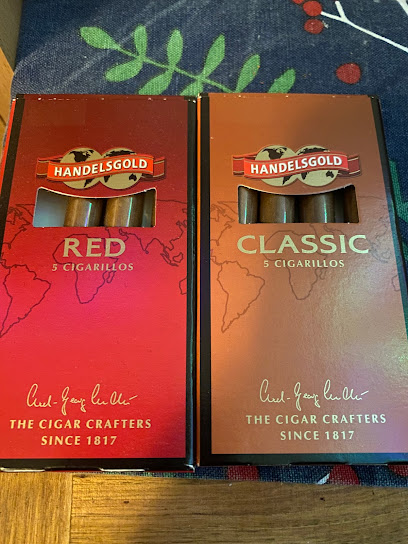
Mammulig
Discover Mammulig, the premier baby store in Vágur, Faroe Islands, offering quality products for infants and toddlers in a charming setting.
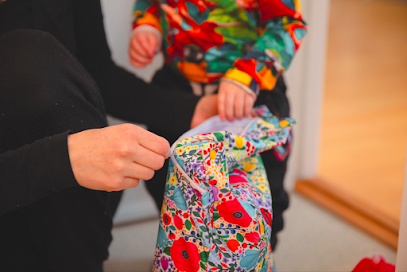
Ullvøruhúsið
Discover the essence of Faroese fashion at Ullvøruhúsið, offering unique woolen garments and accessories in Tórshavn's charming atmosphere.
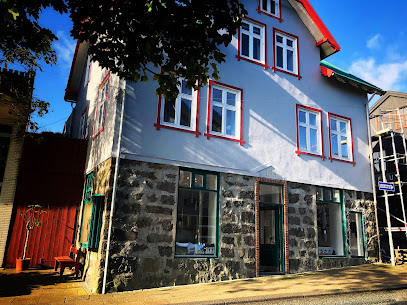
Á Shop
Explore local flavors and fresh ingredients at Á Shop in Vágur, the ideal supermarket for tourists in the stunning Faroe Islands.
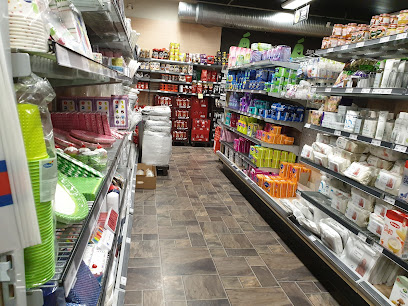
Rit & Rák
Discover the charming Rit & Rák in Tórshavn, a must-visit book store offering a wide selection of literature and a cozy atmosphere for all book lovers.
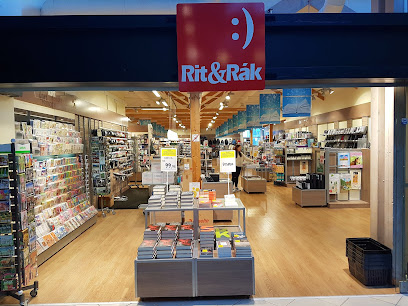
Essential bars & hidden hideouts
Irish Pub Torshavn
Discover the charm of Irish culture in Tórshavn at the lively Irish Pub, serving traditional food and drinks in a cozy atmosphere.
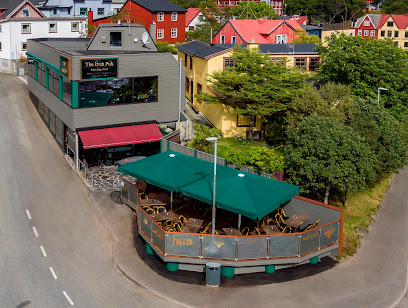
Sirkus Bar
Discover the lively atmosphere of Sirkus Bar, Tórshavn's hotspot for nightlife, great drinks, and local culture.
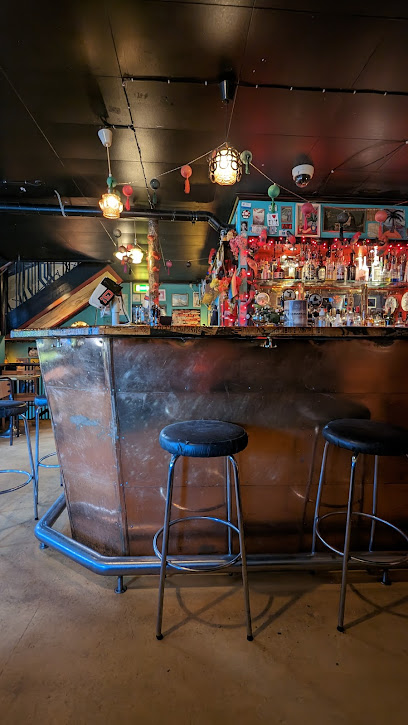
Mikkeller Tórshavn
Experience the vibrant craft beer scene at Mikkeller Tórshavn, where exceptional brews meet a cozy atmosphere in the heart of the Faroe Islands.
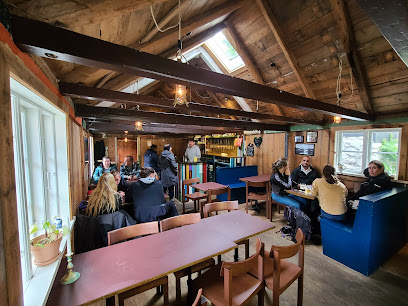
Glitnir
Discover Glitnir, the vibrant bar in Tórshavn where local culture meets a lively atmosphere and a diverse drink selection.
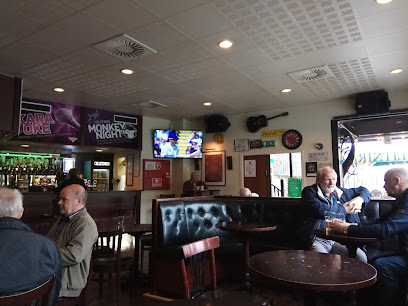
Báran
Experience the authentic flavors of the Faroe Islands at Báran, a charming restaurant in Vágur, known for its fresh local ingredients and cozy atmosphere.
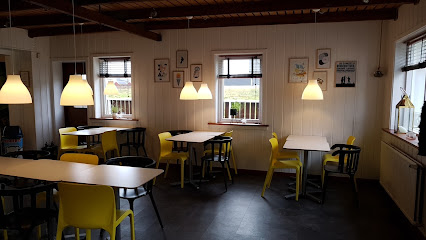
BRIM B&B
Experience the warmth of Faroese hospitality at BRIM B&B, your cozy retreat in Vágur, surrounded by stunning landscapes and local charm.

Matstovan Garðslon
Discover the flavors of the Faroe Islands at Matstovan Garðslon in Vágur, where authentic cuisine meets breathtaking scenery.
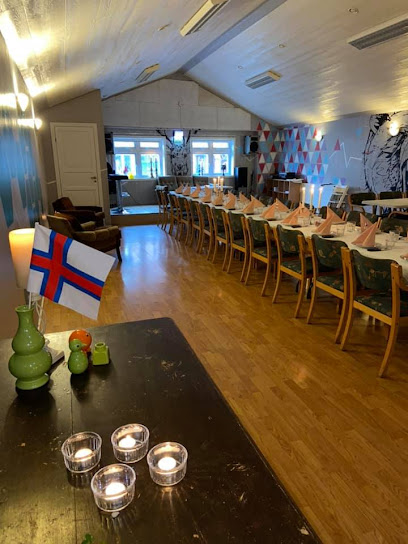
Blábar
Discover the heartbeat of Tórshavn at Blábar, where live music and a cozy atmosphere await you in the Faroe Islands.
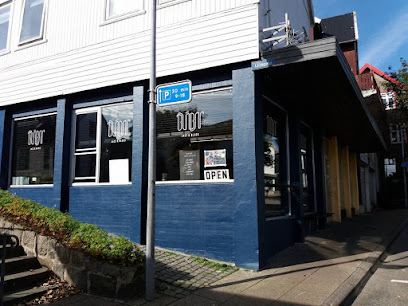
Oyggin Art Gallery
Explore the captivating Oyggin Art Gallery in the Faroe Islands, where local artistry meets delightful brasserie cuisine in a charming atmosphere.
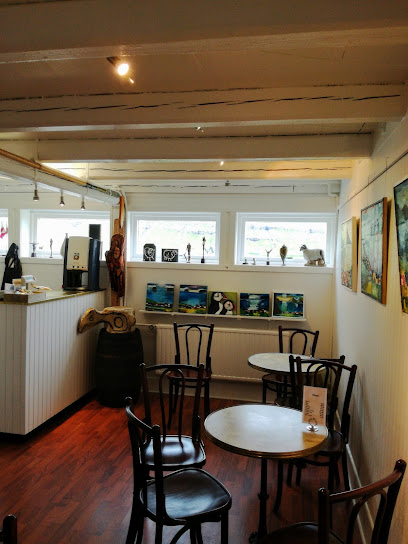
Hjá Jugga
Discover the heart of Vágur at Hjá Jugga, a cozy café offering local delicacies and a warm atmosphere in the breathtaking Faroe Islands.
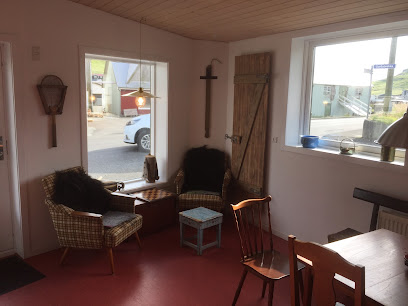
Skýlið
Discover Skýlið in Vágur, where fast food meets Faroese tradition, offering delightful meals in a cozy atmosphere.
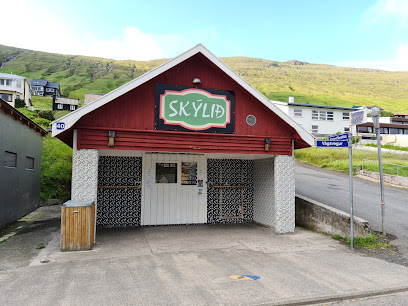
Bjórkovin, the Beer Hub
Discover the vibrant atmosphere and extensive beer selection at Bjórkovin, the perfect spot to unwind in Tórshavn, Faroe Islands.
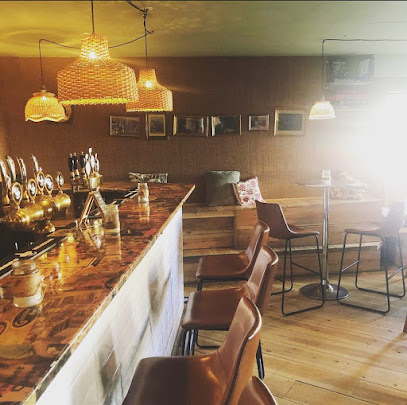
Avocado pizza
Indulge in gourmet pizzas made with fresh local ingredients at Avocado Pizza in Tvøroyri, Faroe Islands.
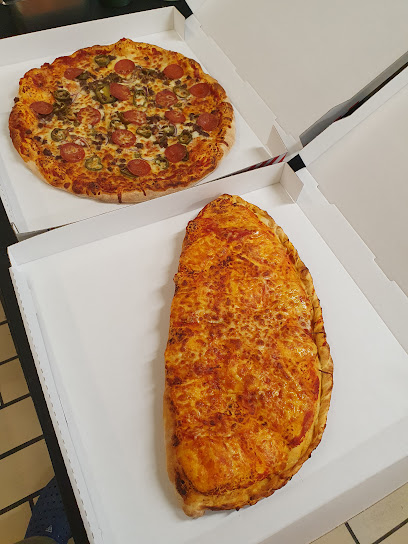
Tvøroyrar Klubbi
Explore the lively nightlife at Tvøroyrar Klubbi, where Faroese hospitality and local flavors come together in the heart of Tvøroyri.

Local Phrases
-
- HelloHalló
[ha-loh] - GoodbyeFarvæl
[far-væl] - YesJa
[yah] - NoNei
[nay] - Please/You're welcomeVærsgo
[vær-sgo] - Thank youTakk fyri
[tak fyr-ee] - Excuse me/SorryFyrirgev
[fy-rir-gev] - How are you?Hvussu hevur tú tað?
[kvu-su he-vur too tadh] - Fine. And you?Goður. Og tú?
[go-oo-ur. og too] - Do you speak English?Talar tú enskt?
[ta-lar too enskt] - I don't understandEg skilji ikki
[eg skil-yi ik-ki]
- HelloHalló
-
- I'd like to see the menu, pleaseEg vil síggja menu, vænligt
[eg vil see-ya me-nu, væn-lyt] - I don't eat meatEg eta ikki kjøt
[eg eta ik-ki k-yøt] - Cheers!Skál!
[skawl] - I would like to pay, pleaseEg vil gjalda, vænligt
[eg vil g-yal-da, væn-lyt]
- I'd like to see the menu, pleaseEg vil síggja menu, vænligt
-
- Help!Hjálp!
[hyawlp] - Go away!Far burtur!
[far bur-tur] - Call the Police!Ring lögregluna!
[ring l-uh-gre-glu-nah] - Call a doctor!Ring til læknin!
[ring til l-ai-knin] - I'm lostEg er týstur
[eg er t-ooi-stur] - I'm illEg er sjúkur
[eg er s-yoo-kur]
- Help!Hjálp!
-
- I'd like to buy...Eg vil keypa...
[eg vil kee-pa] - I'm just lookingEg berre lurkar
[eg ber-re lur-kar] - How much is it?Hvussu mikið kostar tað?
[kvu-su mi-kidh k-os-tar tadh] - That's too expensiveTað er ov dýrt
[tadher ov duhrt] - Can you lower the price?Kann tú lækkja prís?
[kan too lai-kya prees]
- I'd like to buy...Eg vil keypa...
-
- What time is it?Hvat er klokkan?
[kvat er klok-kan] - It's one o'clockTað er eitt
[tadher ayht] - Half past (10)Hálv tíggju
[hawlv tee-gyoo] - MorningMorgun
[mor-goon] - AfternoonHádegi
[haw-de-gee] - EveningKvøld
[kvuldh] - YesterdayÍ gjár
[ee gyawr] - TodayÍ dag
[ee dakh] - TomorrowÍ morgin
[ee mor-gin] - 1ein
[ayn] - 2tvey
[tvey] - 3tríggir
[tree-gir] - 4fýra
[fy-ra] - 5fimm
[fimm] - 6seks
[seks] - 7sjey
[sh-ay] - 8átta
[aut-ta] - 9níggju
[nee-gyoo] - 10tíggju
[tee-gyoo]
- What time is it?Hvat er klokkan?
-
- Where's a/the...?Har er ein/the...
[har er ayn/the...] - What's the address?Hvat er adressan?
[kvat er adh-ress-an] - Can you show me (on the map)?Kanstu vísa meg (á kortinum)?
[kan-stu vee-sa meg (ow kort-inum)] - When's the next (bus)?Nær kemur næsta (buss)?
[nair kem-ur n-ai-sta (boos)] - A ticket (to ....)Eitt miða (til ....)
[ayt mi-tha (til ....)]
- Where's a/the...?Har er ein/the...
History of Vágur
-
Vágur, located on the southern island of Suðuroy in the Faroe Islands, has roots dating back to the Viking Age. The settlement was established around the 9th century by Norsemen. The fertile land and rich fishing grounds made it an ideal location for early settlers. Archaeological findings, such as ancient Viking longhouses, provide a glimpse into the lives of these early inhabitants.
-
During the medieval period, Vágur became a significant trading post within the Faroe Islands, particularly under the influence of the Hanseatic League. The League's traders frequently visited the island to buy fish and other local products, fostering a period of economic growth and cultural exchange. This era left a lasting impact on the town's architecture and trade practices.
-
In the 14th century, the Faroe Islands, including Vágur, were not spared from the devastating impact of the Black Death. The plague significantly reduced the population, leading to a period of hardship and slow recovery. Many historical records from this period were lost, but the resilient community gradually rebuilt itself over the following centuries.
-
The Reformation in the 16th century brought significant religious and cultural changes to Vágur. The influence of Lutheranism replaced the Roman Catholic Church's dominance, leading to the establishment of new religious practices and institutions. The local church, built in 1847, stands as a testament to this transformative period in the town's history.
-
The 19th and early 20th centuries saw Vágur emerge as a crucial hub for the Faroese fishing industry. The town's strategic location and access to rich fishing grounds contributed to its prosperity. The introduction of modern fishing techniques and vessels further boosted the local economy. This period also saw the establishment of fish processing plants, which remain vital to Vágur's economy today.
-
During World War II, the Faroe Islands were occupied by British forces to prevent German invasion. Vágur played a strategic role due to its southern location and its harbor facilities. The presence of British troops brought both challenges and opportunities to the local community. Infrastructure improvements made during this period had a lasting impact on the town's development.
-
The post-war era brought significant growth and modernization to Vágur. Advances in technology and infrastructure, including improved transportation and communication networks, transformed the town. The establishment of educational institutions and healthcare facilities enhanced the quality of life for residents. Vágur's economy diversified, though fishing remained a cornerstone of its prosperity.
-
Vágur is rich in cultural heritage, with traditions that date back centuries. The town hosts various festivals and events throughout the year, celebrating Faroese music, dance, and folklore. The annual Jóansøka festival is a highlight, attracting visitors from across the islands and beyond. Traditional Faroese chain dancing and boat races are among the many cultural activities that showcase the vibrant spirit of Vágur.
Vágur Essentials
-
Vágur is located on the island of Suðuroy in the Faroe Islands. The nearest international airport is Vágar Airport, located on the island of Vágar. From Vágar, you can take a domestic flight to the island of Suðuroy or a ferry from Tórshavn, the capital city of the Faroe Islands. The ferry journey typically takes about 2 hours. Once on Suðuroy, Vágur is easily accessible by road.
-
Vágur is a small town and is best explored on foot. For longer distances within Suðuroy, you can use local buses or taxis. Car rentals are also available and can be a convenient way to explore the island at your own pace. The public transportation system is reliable, and schedules can be found online or at local information centers.
-
The official currency in the Faroe Islands is the Faroese króna (DKK), which is pegged to the Danish krone. Credit and debit cards are widely accepted in hotels, restaurants, and shops. It is advisable to carry some cash for small purchases or in areas where card payment might not be available. ATMs are available in Vágur for cash withdrawals.
-
Vágur is generally a very safe destination with a low crime rate. There are no specific high-crime areas targeting tourists. However, as with any travel destination, it is always wise to take standard precautions: keep an eye on your belongings, avoid walking alone at night in unfamiliar areas, and stay aware of your surroundings.
-
In case of emergency, dial 112 for immediate assistance. Vágur has a local medical center for minor health issues, and more comprehensive medical facilities are available in Tórshavn. It is advisable to have travel insurance that covers medical emergencies. Pharmacies are available in Vágur for over-the-counter medications.
-
Fashion: Do dress in layers and be prepared for sudden weather changes. Waterproof clothing is recommended. Avoid overly revealing clothing. Religion: Do respect local religious practices. When visiting churches, dress modestly and behave respectfully. Public Transport: Do be punctual and respectful of others. Don’t eat or drink on public transport. Greetings: Do greet people with a friendly hello or a handshake. Faroese people are generally warm and welcoming. Eating & Drinking: Do try local Faroese delicacies such as fermented fish and lamb. Don’t refuse hospitality, as it is considered impolite.
-
To experience Vágur like a local, visit the local fish market where you can buy fresh seafood. Engage with the locals, who are often friendly and willing to share stories about the town’s history and culture. Don’t miss the opportunity to hike in the surrounding hills and enjoy the stunning views of the rugged coastline. Visit the local museum to learn more about the history and heritage of Vágur.
Trending Landmark in Vágur
-
Kirkjubømúrurin
-
Múlafossur Waterfall
-
Gjógv Natural Harbour
-
The Nordic House
-
Fossá
-
Skansin
-
Trælanípa
-
The Seal Woman (Kópakonan)
-
The National Gallery of The Faroe Islands
-
Tjóðsavnið (Faroe Islands National Museum)
-
Kallur Lighthouse
-
Bøsdalafossur Waterfall
-
Slave Cliff (Lake Above the Ocean)
-
Klakkur
-
Tórshavn Cathedral
Nearby Cities to Vágur
-
Things To Do in Tvøroyri
-
Things To Do in Nólsoy
-
Things To Do in Argir
-
Things To Do in Tórshavn
-
Things To Do in Miðvágur
-
Things To Do in Sandavágur
-
Things To Do in Sorvagur
-
Things To Do in Runavík
-
Things To Do in Strendur
-
Things To Do in Kvívík
-
Things To Do in Vestmanna
-
Things To Do in Hvalvík
-
Things To Do in Gøta
-
Things To Do in Klaksvik
-
Things To Do in Inverness









